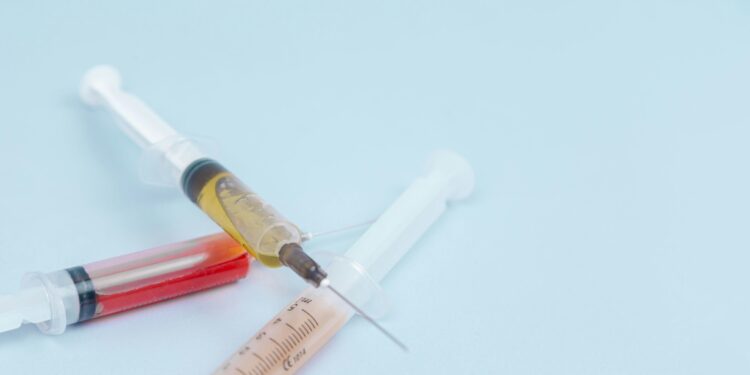Credit: Unsplash/CC0 Public domain
First boosters, second boosters, monovalent, bivalent. Much like the SARS-CoV-2 virus strain, vaccines to combat the virus are constantly evolving and can be confusing.
In an effort to better understand the variety of vaccines and the methods used globally to study their effectiveness, a group of University of Michigan researchers, led by Sabir Meah and Bhramar Mukherjee, evaluated some 80 studies and 150 millions of observations from patient datasets around the world. world to understand the different models and methods that have been used to study the effectiveness of COVID-19 vaccine doses after primary vaccination. Their study was published in Scientists progress.
They then applied all of the methods used in those studies to patient data from Michigan Medicine.
Meah is a School of Public Health alumnus with a master’s degree in biostatistics and currently a urology biostatistician at Michigan Medicine. Mukherjee is the John D. Kalbfleish Distinguished University Professor of Biostatistics, Sioban Harlow Collegiate Professor of Public Health, and assistant vice president for research in the Office of the Vice President for Research.
“What we were able to create is a repository of methods that can be applied to future annual vaccines,” Mukherjee said. “Having robust, reproducible results and reliable estimates of vaccine effectiveness is important to solidify public trust and combat misinformation. »
Meah explains further:
Based on the patient data you reviewed, could you explain your findings regarding bivalent and monovalent boosters?
In our study, we evaluated three different vaccination schedules: 1) the monovalent booster targeting the original strain, 2) the second monovalent booster also with the original formulation, and 3) the new bivalent vaccine updated to fall 2022 to target new omicron variants. We found that all sequential doses provided a substantial benefit in preventing hospitalizations and deaths, and the fall 2022 omicron-specific vaccine dose estimates were more robust than those from global studies we we examined.
These findings support the practice of periodically updating COVID-19 vaccines for currently circulating variants. Fortunately, it appears that in the United States and many other countries, such as those in the European Union, we will receive updated COVID-19 vaccines each year. The fall 2022 vaccine has already been replaced by a new, updated vaccine in fall 2023, which you can still get now in early 2024, if you haven’t already, targeting the even newer variant of the omicron XBB1.5.
We expect our findings on the utility of vaccine updates to be generalized to any updated COVID-19 vaccine, not just the fall 2022 bivalent vaccine, but additional monitoring and study of The real effectiveness of an annual vaccine is still needed, and we hope that the results of our research can help these studies. What we have been able to do is establish an analytical pipeline through which researchers can study the effectiveness of future annual vaccine formulations.
Could you describe what biostatistics brings to this subject?
Biostatistics and epidemiology provide a toolbox for the complex process of evaluating vaccine effectiveness in observational scientific studies. However, there are a number of different approaches, both in study design and in the methods used by researchers in vaccine effectiveness studies conducted around the world. This is what motivated us to proceed with our review of their methodology and results, as well as a subsequent case study. these methods using data from Michigan Medicine.
Fortunately, a key finding of our study is that vaccine effectiveness estimates remain relatively stable and do not depend heavily on method choice for hospitalization and mortality outcomes. We have not observed this advantageous property for infection outcomes, but hospitalization and death are arguably much more important points of study as we move forward into the endemic phase of the pandemic.
Given what your research says about the power of COVID-19 boosters to prevent serious illness and hospitalizations, what would you like this study to convey to the public?
The COVID-19 vaccines examined in our study, including the fall 2022 bivalent vaccine, provided strong protection against hospitalization and death. We expect this trend to continue with additional annual FDA-approved vaccines, but continued studies of future vaccines are warranted, and our results provide important points of consideration for these future studies.
More information:
Sabir Meah et al, Heterogeneity of design and analysis in observational studies on COVID-19 booster effectiveness: review and case study, Scientists progress (2023). DOI: 10.1126/sciadv.adj3747
Provided by University of Michigan
Quote: Vaccine effectiveness: Which COVID-19 vaccines are most protective against severe disease? (February 2, 2024) retrieved February 2, 2024 from
This document is subject to copyright. Except for fair use for private study or research purposes, no part may be reproduced without written permission. The content is provided for information only.



